Can You Only Eat Ground Beef and Bacon on Keto Reddit
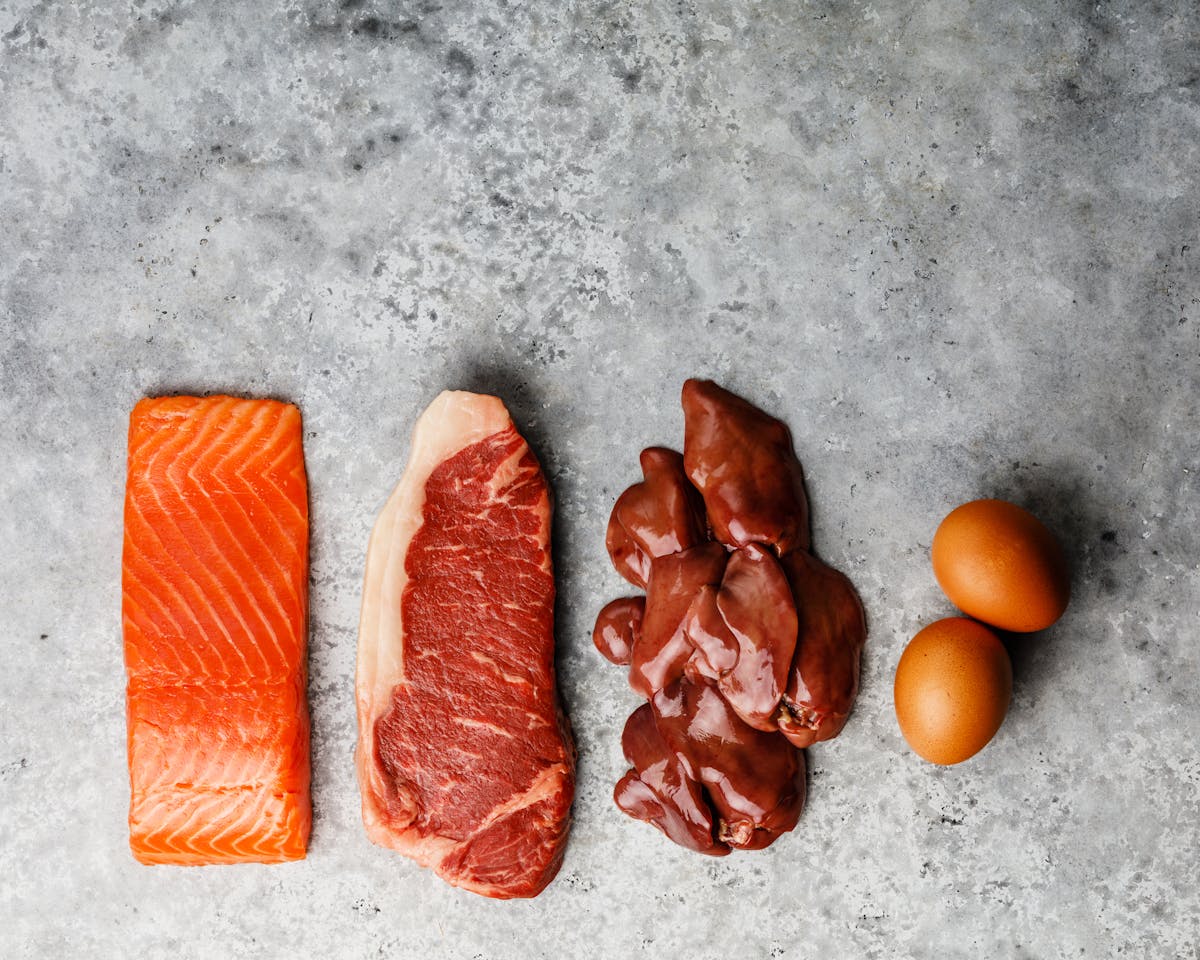
Sinking our teeth into the carnivore diet: what's known, what's not
- Why explore carnivore eating?
- What to eat
- Potential benefits
- Experts weigh in
- Testimonials and advocates
- Aboriginal past
- Paleomedicina in Hungary
- Abdominal permeability
- Colon cancer?
- My ane-month trial
T-basic for breakfast, ground circular for lunch, rib eyes for dinner. Does this sound like your dream menu — or your worst nightmare? Is a diet consisting of only animal products a uncomplicated, healing way to eat or an overly restrictive regimen that borders on an eating disorder?
A carnivore diet contains animal products simply. It is institute-free. In its nearly extreme form, it includes only meat and water.
Read on to learn more well-nigh the zero-carb, carnivore fashion of eating. And find out the results — positive and negative — I experienced when I tried the nutrition for 30 days.
Disclaimer: Good research show is currently lacking about this mode of eating. This guide summarizes what is known to engagement.
Why explore carnivore eating?
At Diet Md we exercise our best to examine the best scientific evidence bachelor to support safe and sensible dietary decisions to help you improve your health.
Some burgeoning dietary regimens, however, lack high-quality show either for or against their use. For the carnivore diet, there are a growing number of anecdotes, a wide range of practiced opinions, and some interesting evolutionary theories. However, very few enquiry studies exist around carnivory.
Should nosotros ignore the growing popularity of carnivore eating because of these scientific limitations and pretend it doesn't be? Or should we acknowledge it and hash out what is known and not known about its potential benefits and harms? We have called the latter arroyo merely strongly stress that much more experimental enquiry needs to be done.
What to eat on the carnivore diet
So, what do you actually eat on the diet? Besides called a null-carb diet or brute-sourced foods (ASF) diet, the carnivore diet typically consists of 100% animal foods — meat, fish, eggs, high-fat dairy products, and animal fats. Some adherents eat just meat, salt, and water. Others permit for exceptions like coffee, tea, and minor amounts of spices used in cooking, if tolerated.
Co-ordinate to a survey of 170 participants who had been following a carnivore
nutrition for at least half-dozen months, the verbal composition of the diet may differ widely
amongst individuals due to food preferences or other considerations. Beef was the
most mutual nutrient consumed across the group, but a broad multifariousness of brute foods was reported.1
The carnivore diet has been getting a lot of attention lately. In that location are Reddit forums with thousands of members, many Facebook groups, numerous articles in mainstream media, podcasts and hundreds of YouTube videos.
However, is a trial of the nutrition right for y'all?
Videos almost meat
Why people plow to carnivory
At Diet Doctor we recommend above-basis vegetables in our low-carb and keto guides and recipes. This suits most people very well because such vegetables are very low in carbs and contain a lot of fibre, nutrients, and trace minerals. They tin likewise exist filling.
1 can generally swallow a few servings of kale, broccoli, cauliflower, Brussels sprouts, zucchini, and other veggies without exceeding 20 grams of net carbs a day. Moreover, eating a mixture of non-starchy vegetables with brute products like meat and cheese provides good dietary variety, which can make depression-carb eating more interesting and sustainable for the long term.2
Non everyone, however, achieves complete success on a depression-carb ketogenic diet that is rich in vegetables. According to comments gleaned from diverse carnivory websites, Facebook groups, and word forums, some people tried a keto diet first only were dissatisfied with their results, prompting the trial of carnivory.
"By and large, most people doing the carnivore nutrition have some persistent health issue that the keto diet did not completely fix, such as not enough weight loss, a mental wellness condition, an autoimmune status, or uncontrolled cravings," says Dr. Paul Mabry, a cipher-carb US family medico who blogs at Born to Eat Meat and manages a Facebook grouping, Cipher Carb Doc, which now has more than 8,500 members.
Dr. Mabry says he was "a total sugar addict" who at first did well on a keto nutrition that included lots of vegetables. He lost 50 pounds on keto, but his weight stalled at 230 pounds — which was well-nigh fifty pounds to a higher place his ideal weight. Plus, his manus eczema, cravings and tendency to overeat continued.
"Fifty-fifty the tiniest amount of carbs tin can start my cravings and binging," said Dr. Mabry.
In 2015 he began a carnivore nutrition, eating almost 80% fat and 20% protein. His weight dropped, his hand rashes cleared, and his cravings stopped. He has now maintained a weight of 180 pounds with no issues.
"I don't think everyone needs to eat a cypher-carb diet. But if you are like me, someone who is severely metabolically damaged from a lifetime of sugar addiction, I think it tin can aid," he says, calling it a total forbearance arroyo to carbs.
Australian Jane Jordan, a one-time nurse, did the keto nutrition for seven years, with good results. She lost weight, normalized her blood sugar and claret pressure, and eliminated her migraines and IBS.
In spring 2018, when Jordan was diagnosed with early on-stage glaucoma, a condition that runs in her family, she constitute some posts that nothing-carb might help her eyesight.3 Recent research has suggested that Vitamin B3, known equally nicotinamide, may potentially exist an effective preventive agent or treatment for glaucoma.4 The foods highest in nicotinamide include meat, poultry and seafood.
"Why not try it? I had nothing to lose," said Jordan.
Subsequently seven months of the carnivore diet, a retest of her eyes by her optometrist in October 2018 plant no evidence of the disease. "I am convinced that information technology was the zero-carb diet that reversed it," she says.5
There are currently no research trials examining the carnivore diet for glaucoma. But stories of health comeback can even exist institute as far back as 1799, where a example report was published describing a meat-simply diet being used in conjunction with other therapies to "permanently cure" a case of blazon two diabetes (although information technology would more likely exist accurately described as "remission" or "management").vi
Disclaimer:. Stories similar these are anecdotes and do not equal good research bear witness. We tend to hear more about the positive stories of people on carnivore diets. No research exists about how many reach health improvements and how many feel negative symptoms or no improvements.
It is articulate, notwithstanding, that success is not guaranteed for all on the diet. Other people in Facebook groups and discussion forums take complained of weight proceeds, bloating, digestive upset, increased torso odor, increased acne, increased tartar on teeth, and other unwanted or lackluster results later on adopting a zero-carb nutrition.vii
Pop podcast host Joe Rogan publically commented on his "explosive diarrhea," but noted this cocky-resolved after a couple weeks. Not-peer reviewed surveys from Dr. Shawn Bakery and Amber O'Hearn report infrequent side furnishings and mostly beneficial findings.8
Experts weigh in: some pro, some con— some alarmed
Among low-carb experts, the carnivore diet is controversial.
Low-carb neuroscientist Rhonda Patrick, PhD, is concerned nigh the potential for negative gut microbiome changes and the risk of micronutrient deficiencies. "What is attracting someone to endeavor such a restrictive diet without any published studies or long-term evidence? Why would y'all do it?" she said in an October 2018 podcast with Joe Rogan. She said the most common reason seems to be trying to influence ongoing autoimmune conditions.
Psychiatrist Dr. Georgia Ede supports a trial of the nutrition. In her popular Diagnosis Diet blog and in this Diet Doctor video , she explores whether vegetables are truly necessary for wellness. While at that place are ample data reporting health benefits from eating vegetables, the question remains if someone can maintain expert health long-term while completely avoiding vegetables. She told participants at the 2018 Depression-Carb San Diego briefing that she was currently trying a carnivore nutrition herself and, so far, was experiencing positive results, such as improved slumber, steady mood and resolution to her migraines and night-fourth dimension leg cramps.
Dr. Ted Naiman says he has now had many patients who accept done 30-, 60-, and 90-day trials of the carnivore diet, with generally good results and normal labs. Notwithstanding, he has been finding that longer term, the diet may exist more concerning. "I've at present had a small handful of patients who were doing this longer than six months who have reported vague fatigue. The lab workup in these people is usually normal except for very low folate levels, below the normal range." (Folate, or vitamin B9, is an essential vitamin found in high amounts in green vegetables, egg yolks, organ meats, avocado and legumes. Hither is a listing of food folate sources.)
Dr. Steve Phinney is concerned about potential deficiencies in sodium, magnesium, and potassium in those who follow the carnivore diet.9
Dr. Jason Fung says, "In that location is little research prove around it. Merely if people are doing well on it, I don't have a problem with it. And if micronutrients are an event, you can always take a daily vitamin."
Other low-carb experts who were approached for their stance for this story decided to pass: "In that location are no long-term studies. I'd rather not comment," was a common response.
Most mainstream dietary experts, who mostly don't support low-carb ketogenic eating, are alarmed. They call the carnivore diet extreme, insane, and a bad idea.
Testimonials, blogs and advocates blossom
Despite the controversy, some high-profile individuals are sharing how a carnivore nutrition helped resolve their intractable problems, especially mental illness and serious autoimmune conditions.
One of the about prominent and dramatic stories is of Canadian Mikhaila Peterson, who had juvenile rheumatoid arthritis that was so severe she'd had three articulation replacements (a hip and two ankles) before historic period 17. She also had farthermost fatigue, anxiety, and low. In 2015 she began eliminating foods to see if a specific food was contributing to her autoimmune issues. She concluded up eating simply beef, salt and h2o — and all her symptoms disappeared.
Peterson's father is the controversial Academy of Toronto psychologist Jordan Peterson, PhD, the bestselling author of 12 Rules For Life. Peterson witnessed his daughter'southward improvements, adopted the aforementioned diet, and has said information technology caused his long-term depression to lift. Both Mikhaila and Hashemite kingdom of jordan'south stories have been featured on Diet Doctor.
Other high-profile advocates include orthopedic surgeon Dr. Shawn Baker, Kelly Hogan who blogs at My Zip Carb Life, and Esmée La Fleur who runs the ZeroCarbZen website, where she interviews other carnivores about how the diet has impacted their health.
Meat Rx, Dr. Baker's website, collects hundreds of testimonials of personal health transformations. But Meat, curated past bitcoin entrepreneur Michael Goldstein, has a large drove of manufactures, historic documents, archeological studies, and other carnivory links.
Included at ZeroCarbZen are all the athenaeum of the late Owsley Stanley, a.k.a "The Carry", the sometime audio engineer (and LSD supplier) to the Grateful Expressionless. Stanley was a carnivore for some 50 years, and while the rock band happily took his drugs, they would not take his dietary advice. His story is fascinating reading.
Some of the most scientific and nuanced writing on the carnivore nutrition is being washed by Amber O'Hearn, who has a popular blog and website Mostly Fat. A computational mathematician, O'Hearn has been a carnivore for more than a decade and says she volition stay on it for life, considering information technology is the only mode of eating she has institute that controls her bipolar disorder. She speaks at many depression-carb conferences, and even hosted her own carnivore conference in 2019. Her full-length podcast is available on the member side of Diet Doctor.
"I don't advocate eating a carnivore nutrition for no reason at all," O'Hearn says. "If you tin eat a more varied low-carb nutrition with good results, why wouldn't you?" But she also rejects the dominant, unchallenged view that humans simply must consume vegetables for health and that pure carnivory is physiologically implausible.
Available Research on Carnivorous Diets
Although research regarding plant-free diets is scarce, and there are no randomized controlled trials, there are some publications on the topic.10 Amber O'Hearn, for example, published a newspaper stating that the nutrition can encounter all micronutrient needs, including Vitamin C.xi
A example serial published in Dec of 2020 reported five out of six subjects starting a carnivore diet resolved their pocket-sized intestine bacterial overgrowth (SIBO).12
A paper on the effects of a Paleolithic Ketogenic Diet (PKD) on serum magnesium levels showed normal levels in all but one person, and reports of leg cramping resolving on PKD (which can be triggered by magnesium deficiency).13
Finally, researchers from Harvard University, Dr. Belinda Lennerz and Dr. David Ludwig, published a report from over 2,000 individuals who self-reported their experience with a carnivore diet.fourteen The results were overwhelmingly positive with 93% improving or resolving obesity or overweight, 93% for hypertension, 98% for diabetes or insulin resistance, 97% for gastrointestinal symptoms, and 96% for psychiatric symptoms. Although the data quality are very low, given the loftier risk for selection bias with these self-reported outcomes, this report is an important outset pace toward larger, more than rigorous investigations of a establish-free diet.
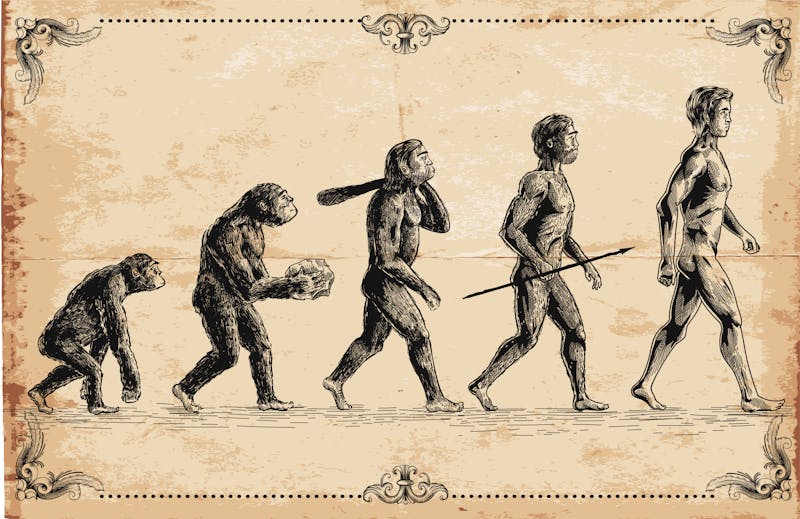
Threads of show from our ancient past
So, exercise we need to eat plenty of plants for good health? What show exists that our man ancestors survived, and maybe even thrived, on a largely meat-based diet?
Many of the people listed above draw upon common archeological, anthropological, and physiological sources to argue that humans evolved to exist carnivores, and that fatty meat and organ meats are humans' optimal diet. Every bit hunter-gatherers, they say, people may have eaten plants, tubers, nuts, and seeds when meat was scarce — and gorged on summer fruit and berries to fatten up for wintertime — just such foods weren't necessary to maintain health. Meat was.fifteen
Here are some of the cardinal points commonly used to argue that homo sapiens evolved to consume a diet mainly of meat and fat.
- Evolution of human brain size: Over the span of homo evolution, the size of the hominin brain has dramatically increased. Some hypothesize that brain size grew every time a more than nutrient-dense, energy-rich animal food source was eaten, specially animate being fat.xvi In brusque, some declare that creature meat and fat gave the states our brains and fabricated us human.
- Highly acidic stomach: The human breadbasket is more acidic than other primates. Herbivores and omnivores often have less acidic stomachs, while the inside of the human breadbasket is so acidic, information technology is noted as being closer to carrion feeders (meat scavengers) than other carnivores or omnivores.17 This caste of acidity may imply that carrion feeding played a vital role in human development.
- Evolution of the man gut size: Equally our brains were growing, the length of our digestive tract was shrinking.18 Herbivores similar cows, rabbits, and horses accept long, complicated digestive tracts to break downwards found cellulose, while carnivores like lions, wolves, and dogs have short, simple digestive tracts. In ominvores like humans, the GI tract is slightly longer than that of carnivores merely much shorter and less circuitous than that of herbivores.
- Ancient human being and animal remains: Anthropologic studies have found evidence of meat-eating among our distant ancestors going back more than 2 million years. Caches of both man and animal bones in ancient caves and burial sites yield important clues. Cut marks and smashed ancient beast bones show likely evidence of butchery and marrow extraction.19 Analysis of the ratio of nitrogen and carbon laid downward in aboriginal human and Neanderthal basic can give potential information about the protein source of their diets.20 Studies have found that Neanderthals likely had an almost exclusive diet of large fat mammals like woolly mammoth. However, as these large game animals, like elephants, became more scarce, early on modernistic humans may have survived considering of their ability to eat from more varied sources like freshwater fish and smaller mammals — while however predominantly cannibal.21
- Cave art: Bones constitute in caves are one clue, simply what did early modern humans draw in ancient caves such as Espana's Altamira cave and France'southward Chauvet cave? Berry bushes and leafy greens? Nuts and tubers? Nope. Animals! Lots and lots of animals: bison, horse, doe, auroch, wild boar and fifty-fifty (in some cave systems) rhinoceros, mammoths and lions. It is believed these drawings, which are often more than xxx,000 years one-time, were symbolic shamanistic rituals created to increment the success of the hunt, the tribe'south principal and most important food source.
- Agricultural revolution brings a reject in health: Best-selling author and academic Jared Diamond penned a famous 1987 essay, The Worst Mistake in the History of the Man Race, in which he amasses multiple lines of evidence to conclude that the invention of agronomics "was a catastrophe from which we take never recovered."22
- Meat-but study: Jump ahead to the early 20th century when arctic explorer Vilhjalmur Stefansson (1879-1962) did iii expeditions in the Canadian chill, living with the Inuit. For at least vii years he lived on meat alone. Others did non believe such a nutrition could be healthy, so in 1928 he and an expedition teammate were admitted to a ward of New York's Bellevue Hospital to be fed a meat-only diet (with plenty of organ meat) for a twelvemonth and "to be intensively studied on every clinical angle."23 At offset the meat served was likewise lean, making Stefansson ill, but as presently every bit the fat was upped the pair thrived. A second 1930 paper, based on that year-long written report, plant no vitamin deficiencies, normal bowel function, improved dental health and that "the subjects were mentally alert, physically active and showed no specific physical changes in any system of the body."24 In the late 1950s, a few years before his death, Stefansson was interviewed on tv set almost his experiences, which makes fascinating viewing.
- The teeth of the Inuit: In 1929, around the same time equally the Stefansson study, a Harvard dentist studied the teeth of the Inuit. He concluded that "eating a strictly meat diet is the ideal way in which to keep the human mouth in a good for you status."25
- The essential role of Vitamin B3: Establish naturally in meat, fish, eggs, cheese, and milk — equally well as some establish foods — vitamin B3 is an essential nutrient for the functioning of all our cells and nervous arrangement. Also called nicotinamide or nicotinic acid, its presence in the homo diet, some theorize, has played a cardinal role in human evolution, peculiarly in brain and central nervous arrangement development.26 A vitamin B3 deficiency, called for centuries by the name pellagra, was a horrible condition known by the four Ds — dermatitis (scaly skin sores), diarrhea, dementia, and death. In 1915 US epidemiologist Joseph Goldberger found that it was acquired by a diet "poor in brute protein."27
While none of these factors prove that in our modern age we would be improve off limiting ourselves to a carnivore diet, they are key arguments used past carnivore diet proponents that humans evolved to rely heavily on animal-sourced foods.
Paleomedicina in Republic of hungary: treating dire conditions with a zero-carb nutrition
While an increasing number of doctors are recommending the depression-carb ketogenic nutrition to treat a variety of medical weather, currently we are aware of only one medical clinic that is using the nada-carb, all animal-sourced nutrition as a therapy for a wide variety of serious conditions. That clinic is The International Center for Medical Nutritional Intervention (ICMNI) too popularly known as Paleomedicina in Zalaszentgrót, Republic of hungary.
The team, headed past inquiry neuroscientist Dr. Zsófia Clemens and physician Dr. Csaba Tóth, uses its paleo-ketogenic diet therapeutic protocol to treat a wide array of autoimmune conditions, type i and type 2 diabetes, mental health atmospheric condition, and fifty-fifty cancer.
Adult in 2010-2011, their protocol follows what the clinic believes early mod humans evolved to eat. The diet has a ratio of two parts animate being fat to one role beast protein.28 Acceptable protein sources are fatty red meats and organ meats, preferably from pasture-raised animals. No nitrates, nitrites, or additives to meat are allowed. A very small corporeality of vegetables — generally leafy greens — are allowed as long as they practice not take people out of ketosis, simply they are non deemed to be necessary.
On the diet, eggs are at outset eliminated but reintroduced after virtually half dozen weeks to see whether they trigger any negative symptoms (for some, they practice). The diet does non allow any dairy products, fruit, saccharide, grains, starchy vegetables, or processed carbohydrates.
Since 2013, the dispensary has used their paleo-ketogenic diet to care for more than 10,000 patients, according to Dr. Tóth. They've published case studies of the reversal of Crohn's disease, halting of the progression of blazon 1 diabetes, reversing a precancerous condition, and halting the growth of malignant cancer of the soft palate, the rectum, and the brain.29 Their groundbreaking simply controversial work has been featured in a number of podcasts, articles and presentations. Their findings have non yet been reproduced by other researchers or studied in experimental trials.
In an interview with Diet Dr., Dr. Tóth described how he searched for years to find a way to cure his own wellness problems: blazon ii diabetes, high blood pressure, severe eczema, and astringent Crohn's disease. He start found the paleo diet, which helped his conditions merely did not cure them.
It was merely when he combined the paleo diet with the ketogenic diet that his health problems resolved.xxx"Moreover, every clinician in the dispensary at present eats this way, as well," he says. "We are convinced that this is the healthy way of eating."
The role of intestinal permeability
Drs. Tóth and Clemens say their feel suggests that a key machinery of the diet may be its positive bear on on the office of the intestine, healing and reversing intestinal permeability, also sometimes called "leaky gut."
While in the by, mainstream medicine largely dismissed the theory of illnesses existence linked to a leaky gut every bit being pseudo-scientific discipline, recent research is confirming that a breakdown of the gut bulwark can occur.31 Information from a number of academic institutions demonstrate that an increment in abdominal permeability is a common feature of a number of autoimmune and chronic illness weather condition.32
A "healthy" intestine absorbs nutrients and energy for use by the body and is more than likely to proceed out microbes, antigens, and other potential disease-causing agents. The theory is that increased permeability allows unwanted substances to cross the intestinal barrier, triggering inflammation and a dysfunctional allowed response.33 "If you have high intestinal permeability, so information technology is a high probability that all biological membranes are malfunctioning, such as the blood-brain barrier," said Dr. Tóth.34
All of Paleomedicina patients undergo a test, called PEG400, to mensurate their level of abdominal permeability before and after starting the nutrition.35 Dr. Tóth said at Paleomedicina they have shown by repeating the test that their paleo-ketogenic nutrition tin can restore the gut wall to normal permeability within a few months.36
What about colon cancer?
Don't we need to eat vegetables and fibre to prevent colon cancer? Leading health institutions similar the Earth Health System and the Globe Cancer Research Fund declare that ruby-red meat causes colorectal cancer and constantly urge u.s.a. to swallow less of it. Wouldn't a meat-only diet increase the risk of developing cancer?
Diet Doctor has an in-depth guide to red meat and another i on diet and cancer that discuss the weak evidence regarding red meat and cancer, besides equally explore whether vegetables are protective. We direct you to those guides for a more detailed evaluation of meat and cancer take chances.
N=1: My i-month trial
When Dr. Andreas Eenfeldt asked me to enquiry and write this guide to carnivore eating, it became articulate I should give the nutrition a try myself.
I wasn't so sure I wanted to. I love vegetables and salad. I take a large vegetable garden; tending it and eating its bounty is a source of joy. Plus, I've had no outstanding health complaints since adopting the ketogenic diet in 2015. I'm now happy with my weight; I've no machine-immune atmospheric condition nor mental health concerns; I've no trouble controlling carb cravings.
In short, unlike many who try the carnivore diet, I didn't have an overwhelming motivation — except this guide — to effort this way of eating.
In add-on, I was reluctant to tell my family and friends I was eating simply meat. It felt extreme. Information technology did not lend itself to dinner parties, dejeuner dates with girlfriends, and other forms of socializing. I didn't want to go lectures about the evils of meat or accept friends call back I'd developed an eating disorder.
And then, I embarked on a quiet trial, not telling anyone I was doing it. At kickoff I thought I would simply do a calendar week, but I learned that would be too brusk to demonstrate anything.
"Information technology takes well-nigh thirty days to see appreciable differences from this diet and often longer, compared to a merely ketogenic one," advises O'Hearn.
Calmer gut, lower body fat, more hot flashes
First, hither is how I ate:
- I either had eggs and salary for breakfast or skipped breakfast completely. I did accept a cup of coffee with full-fat foam every morning.
- For tiffin I would oft cook footing beef with butter and salt, sprinkled with a scrap of grated cheddar cheese. If I hadn't had breakfast, I might instead have 2 eggs for lunch, or an omelette with cheddar cheese. Sparkling water was my get-to drinkable all day.
- For dinner, information technology would usually exist a piece of meat — steak, rib centre, pork chop, sausage, lamb chop, liver — with a tiny chip of fresh kale or lettuce from my garden (such as is allowed on the Paleomedicina protocol). It was non enough greens to call information technology a salad — and it had no dressing — but was just a scrap of color so my plate did not expect so bare. I honestly found it hard to encounter a plate with just meat on information technology. Seeing the green and chewing a few sprigs of kale or parsley with the meat felt refreshing. I called it my palate cleanser.
- I did not snack at other times of the day. Already beingness keto-adapted helped with this. I don't believe I could take eaten this way if I had not already been on a low-carb, keto diet for three years.
The results:
- GI tract: The showtime four days I had significant digestive upset — mostly diarrhea hitting in the centre of the dark. Not squeamish. But then my gut settled down and was remarkably calm for the adjacent xxx days.
- Weight: I lost 5 pounds within two weeks and kept it off for the 30 days. In iii years of ketogenic eating my weight had go very stable. I thought it was as low equally I could realistically become every bit a 60-yr-erstwhile adult female. It was not. Within a month of stopping eating carnivore, however, I had gained 4 pounds back.
- Body fatty: My body fat percentage, which had come downwardly from 36% to 29% on the keto diet, came down even more to 26.5%. My exercise routine stayed the same.
- Fasting blood glucose: My fasting blood glucose was 85-86 mg/dl (4.seven or 4.8 mmol/L) every morning — optimal.
- Ketones: My daily ketone levels were not as high — usually about 0.three to 0.7 mmol/L. When I ate a depression-carb ketogenic diet my ketones would typically be ane.5 to 2.0 mmol/50.
- Hot flashes: I would get extremely hot, especially after my evening meal and in the middle of the night. At showtime I thought it was a return of menopausal hot flashes, but then in a Facebook discussion among others with the same reaction, it dawned that information technology might be protein thermogenesis — the meat sweats — from the digestion of poly peptide. At times I was uncomfortably hot. Information technology made me call back perhaps this internal, meat-driven furnace was how our paleolithic ancestors survived in winter climes wearing just brute hides and tree bark.
- Better skin: Some long-standing sunday damage (keratoses) on my legs and shoulders simply disappeared. Weird.
- Brain: I did not notice whatever divergence in mood, mental acuity, or mental energy between keto and carnivore. If anything, I call back I experience mentally happier eating vegetables. It may have been because I was non exterior disposed and using the produce from my garden during the month and was not socializing with others over meals.
- Cravings increased: On the depression-carb keto nutrition I've generally had no cravings. On carnivore my cravings actually increased — substantially. I especially longed for fresh salad, raw and steamed broccoli, fresh fruit and berries — and even breadstuff and popcorn. I craved sweets, also. At a party during the month, I could not resist the dessert table, which hadn't occurred in the by on the keto nutrition. I think I wanted a different mouthfeel, a different gustatory modality, even for just a moment. I am non sure what was happening with me simply I found the cravings tough.
- Monotony: I definitely felt deprived of flavours and textures, and as fourth dimension went on I was merely less interested in eating meat. It was very easy to skip a meal because at times I simply didn't hanker for any more than mankind. But, on the other manus, shopping was simple and meal prep and make clean upwardly was super fast.
The biggest surprises to me were how information technology nudged my stalled weight a few pounds, the calm gut and the improved skin. The most difficult was the tedium, the surges of body heat, the cravings, and my self-imposed feeling of social isolation from the diet.
I idea often of Amber O'Hearn'due south comment, "If yous can eat a more varied depression-carb nutrition with practiced results, why wouldn't yous?"
That described me to a T (make that a T-os!). I didn't really need to practise the diet, so the trade-offs were loftier. I had no concerning wellness reason to motivate me; it felt restrictive and limiting. I did not eat out with friends for a whole month. I was glad when my trial was over.
I'm now back to eating a low-carb ketogenic diet with enough of higher up-ground vegetables. I am happier making many of the delicious Diet Doc recipes. That way of eating feels more enjoyable, balanced, and sustainable to me.
That said, however, I understand better why those with astringent or incurable conditions with poor therapeutic options might try carnivore eating. In the absence of any good scientific evidence pro or con, doing their ain n=1 trial over a few months might determine if they are probable to feel any benefit.
Short term, it is unlikely that it would practice whatsoever harm. Merely equally Dr. Naiman notes higher up, longer periods of zero-carb eating might cause health issues for some people. So it is important that anyone considering a trial should pay close attention to their private responses. If there's no improvement over weeks or a few months, information technology's likely not helping, and people can feel satisfied returning to a more varied and less restrictive depression-carb or ketogenic diet.
/ Anne Mullens
Sinking our teeth into the carnivore diet: what's known, what's not - the show
This guide is written by Anne Mullens and was last updated on May 26, 2022. It was medically reviewed by Dr. Bret Scher, MD on January 19, 2022 and Dr. Michael Tamber, Medico on January 19, 2022.
The guide contains scientific references. You lot can observe these in the notes throughout the text, and click the links to read the peer-reviewed scientific papers. When advisable nosotros include a grading of the force of the bear witness, with a link to our policy on this. Our evidence-based guides are updated at least once per year to reflect and reference the latest science on the topic.
All our prove-based health guides are written or reviewed by medical doctors who are experts on the topic. To stay unbiased we show no ads, sell no physical products, and take no money from the industry. We're fully funded by the people, via an optional membership. Most information at Diet Doctor is free forever.
Read more than about our policies and work with evidence-based guides, nutritional controversies, our editorial team, and our medical review board.
Should you find any inaccuracy in this guide, please electronic mail andreas@dietdoctor.com.
Source: https://www.dietdoctor.com/low-carb/carnivore
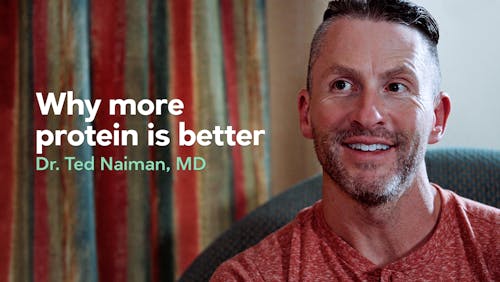
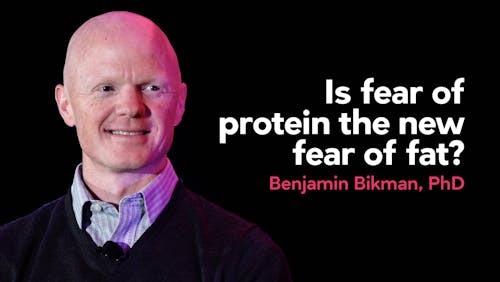
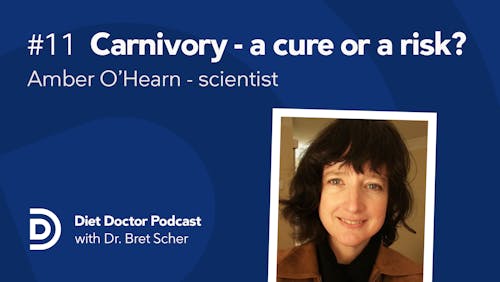
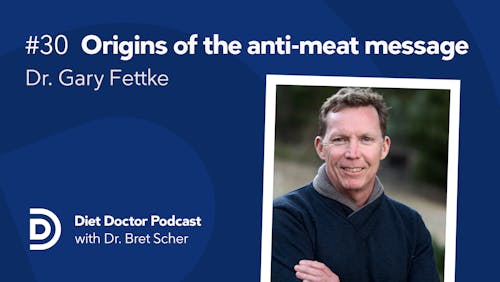
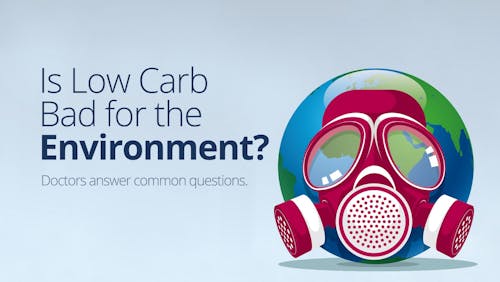
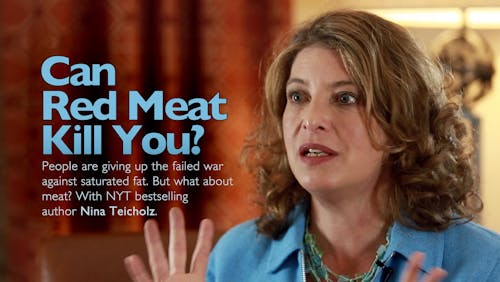
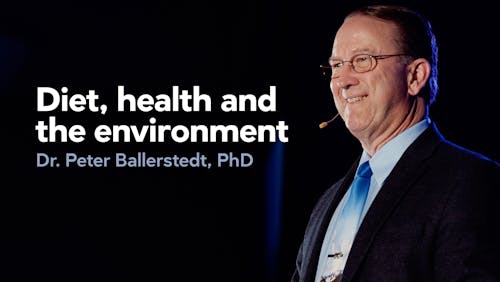
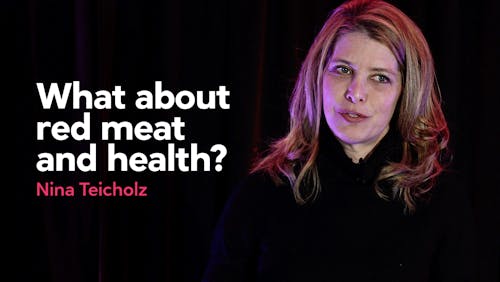
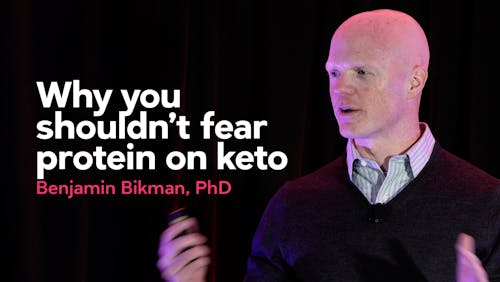
0 Response to "Can You Only Eat Ground Beef and Bacon on Keto Reddit"
Post a Comment